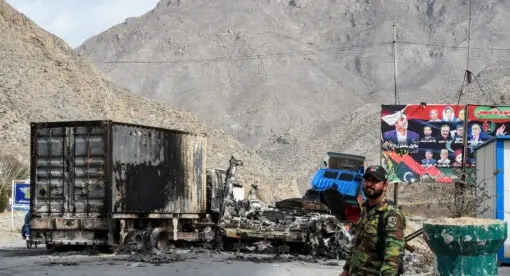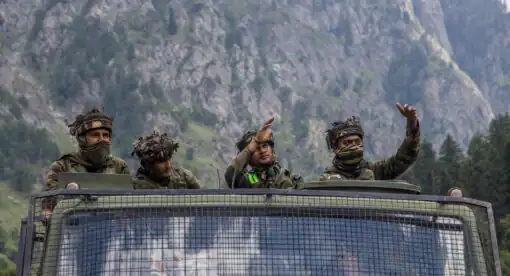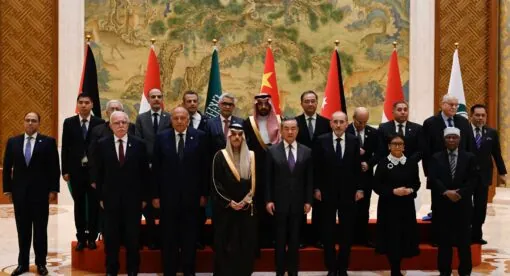
Home / Gendering Geopolitics with Emily Prey: Heather Barr
Gendering Geopolitics with Emily Prey: Heather Barr
Related Articles

Place and Purpose Drove Montreal’s Cultural Evolution
Montreal’s emergence as a cultural powerhouse is no accident – it is a story of vision, deliberate investment, historical turning

Mapping a U.S. Strategy To Counter China’s CPEC Clout
As China continues to prioritize the China-Pakistan Economic Corridor (CPEC) within its Belt and Road Initiative (BRI) framework and its

Buffer Zones: A Key To Calm in the Western Himalayas
As India and China continue militarizing the border region along the Line of Actual Control (LAC) and the status quo

China’s Growing Role in the Middle East
In today’s episode of the Contours podcast, host Kelsey Quinn sits down with Middle East Affairs researcher Dr. Massaab Al-Aloosy.
